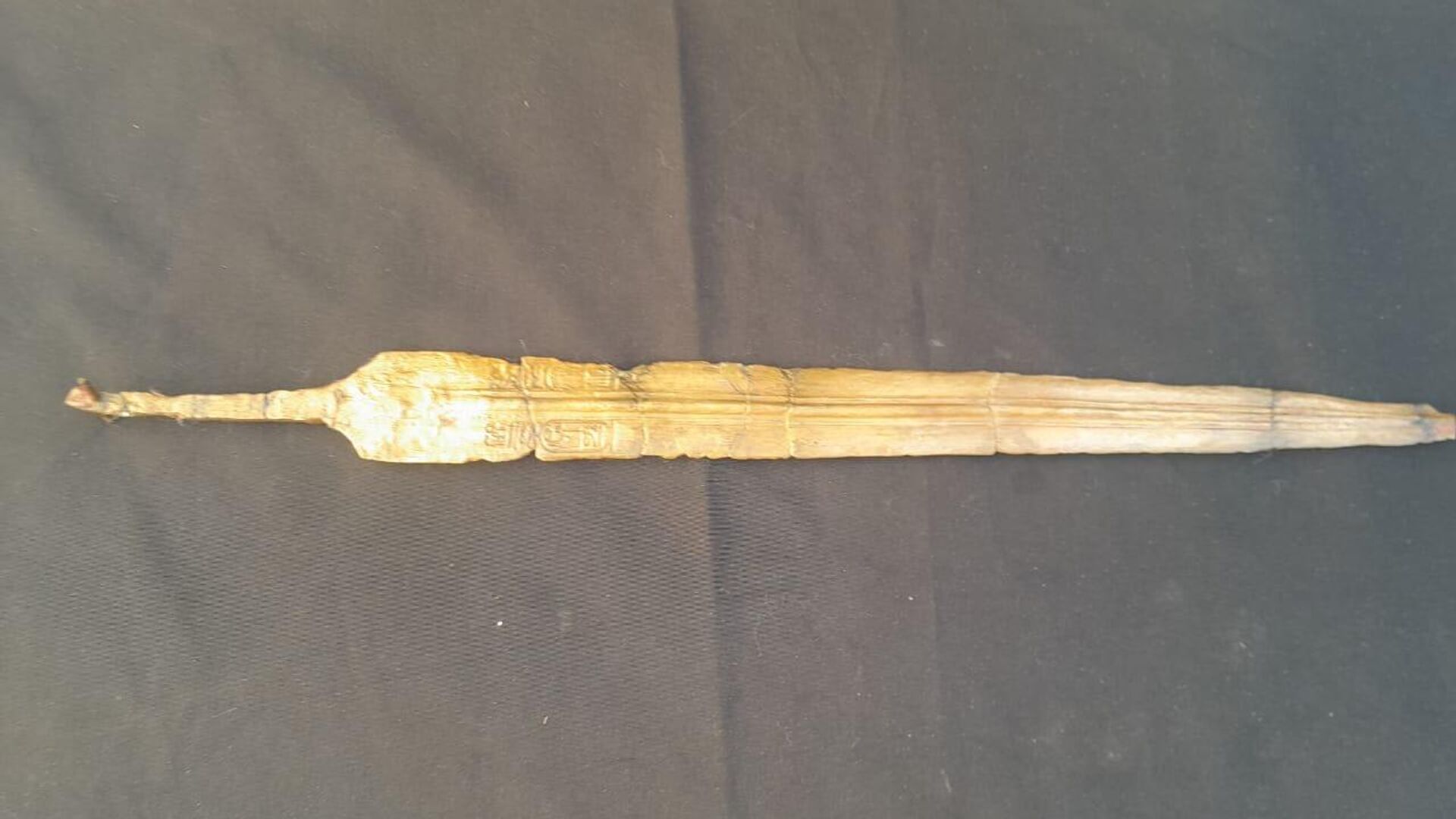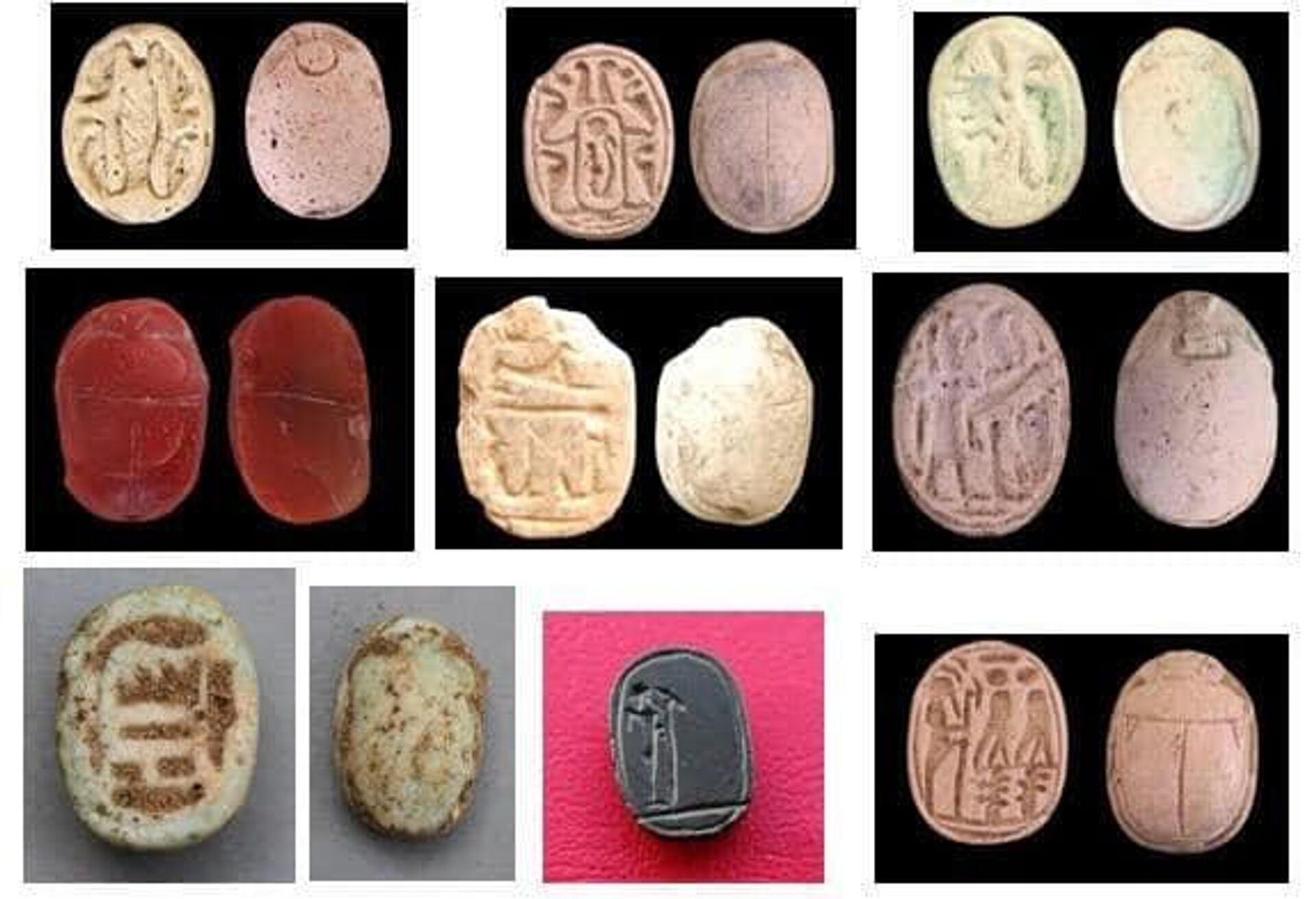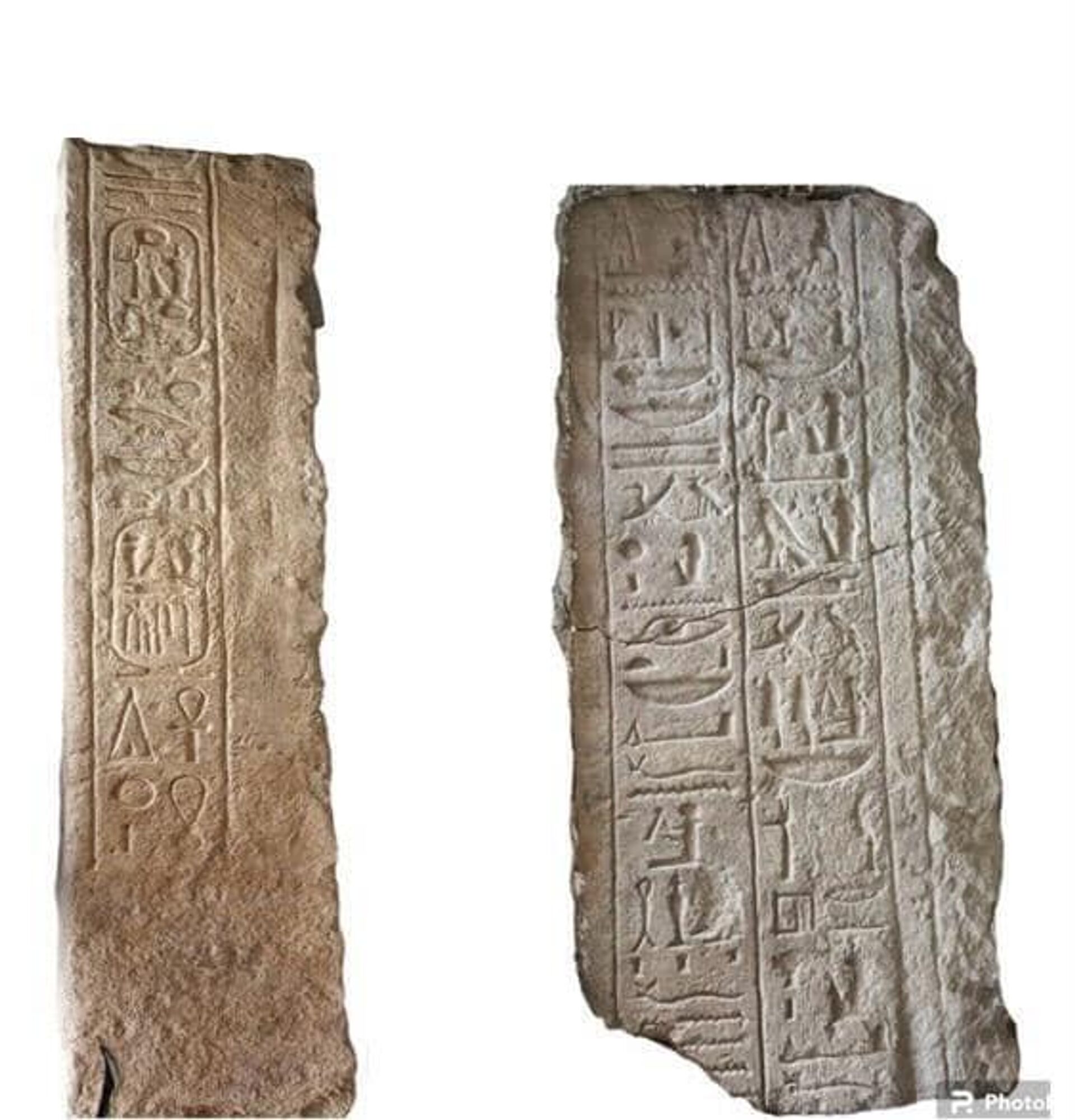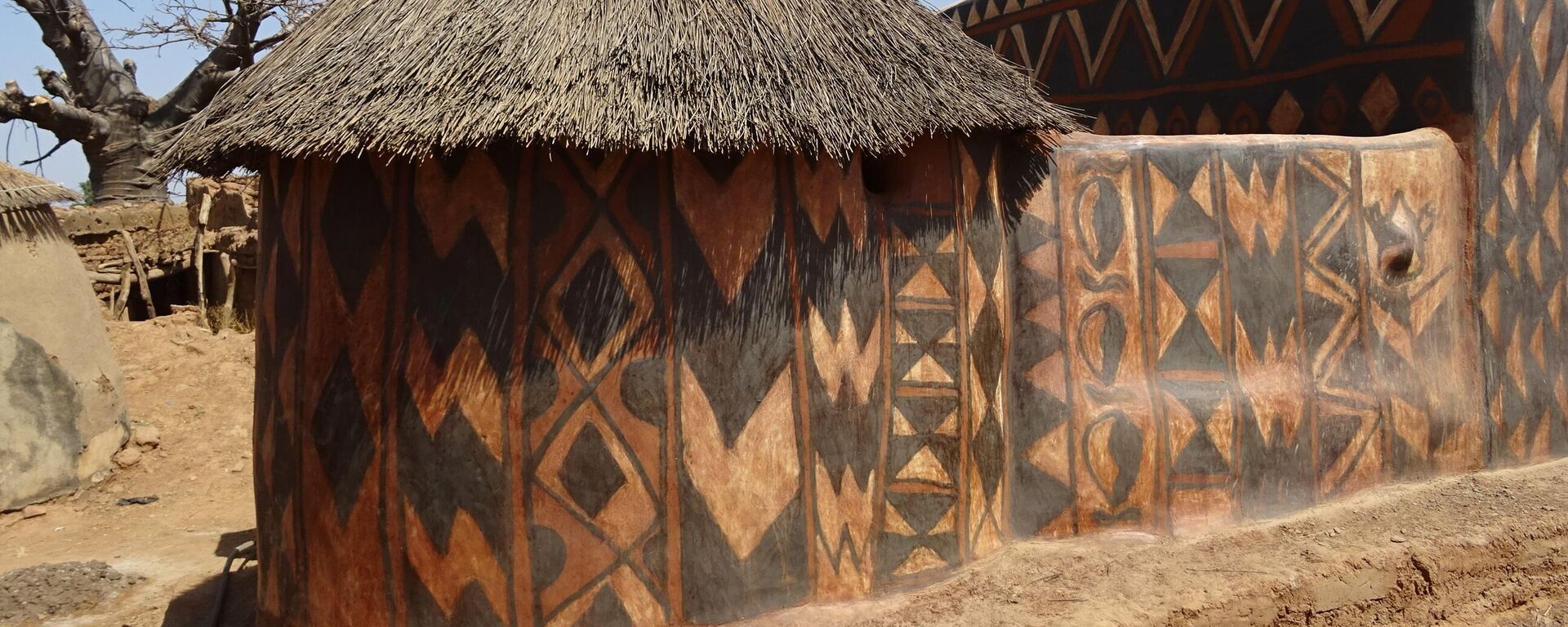https://en.sputniknews.africa/20240908/ancient-egyptian-fort-yields-remarkable-discoveries-including-ramesses-iis-sword-1068194400.html
Ancient Egyptian Fort Yields Remarkable Discoveries, Including Ramesses II's Sword
Ancient Egyptian Fort Yields Remarkable Discoveries, Including Ramesses II's Sword
Sputnik Africa
Tell Al-Abqain is an archeological site in the Nile Delta. It provides valuable insight into the ancient Egyptian civilization, particularly the Predynastic... 08.09.2024, Sputnik Africa
2024-09-08T11:25+0200
2024-09-08T11:25+0200
2024-09-09T14:25+0200
egypt
north africa
archeology
religion
weapon
military
history
ancient egypt
science
research
https://cdn1.img.sputniknews.africa/img/07e8/09/08/1068196434_0:120:1280:840_1920x0_80_0_0_3ae8658e26c5eca9b16763fa0ddd364c.jpg
An Egyptian archeological mission, led by Dr. Ahmed Said El-Kharadly from the Supreme Council of Antiquities, has made groundbreaking discoveries at the site of Tell Al-Abqain in the Beheira Governorate.The team unearthed a series of mudbrick military structures, including barracks, storage facilities, and weaponry, dating back to the New Kingdom era. This fort once served as a crucial military stronghold, protecting Egypt’s northern borders from invaders such as the Sea Peoples and Libyan tribes.Dr. Mohamed Ismail Khaled, Secretary-General of the Supreme Council of Antiquities, reportedly highlighted the importance of these discoveries in confirming the historical role of the Abqain Fort. The site, located along the western military road, was part of Egypt’s extensive defense network. The architectural layout, featuring two identical groups of barracks separated by a narrow passage, reveals the engineering precision of the time, as ancient Egyptian builders adapted their environment to serve both military and practical purposes.Among the most significant finds were warehouses filled with provisions for soldiers stationed at the fort. The excavation uncovered large granaries, ceramic storage jars with remnants of fish and animal bones, as well as cylindrical ovens used for cooking. These discoveries offer a glimpse into the daily lives of the soldiers, who relied on these supplies for sustenance while defending Egypt’s borders.The archeological team also uncovered a rare long bronze sword decorated with the cartouche of Pharaoh Ramesses II. Alongside the sword, other military tools, hunting weapons, and personal ornaments were discovered, shedding light on the dual role of the fort as both a military outpost and a center for daily life.Further discoveries include two limestone blocks, one inscribed with the titles of Ramesses II and another belonging to an official named Bay. The team also found a burial site containing the remains of a cow, symbolizing strength and abundance, reflecting the religious beliefs of the ancient Egyptians. Other religious artifacts, such as scarabs, amulets, and necklaces made of faience and carnelian, were also unearthed.Dr. Ayman Ashmawy, head of the Egyptian Antiquities Sector, explained that the artifacts found at the site not only reveal the fort’s military significance but also provide insight into the spiritual and everyday lives of its occupants. The site’s ongoing excavation is expected to yield more discoveries, further enriching our understanding of Ancient Egypt’s defense strategies and cultural practices.
https://en.sputniknews.africa/20240729/unesco-adds-five-new-african-sites-to-world-heritage-list-1067669401.html
egypt
north africa
ancient egypt
Sputnik Africa
feedback@sputniknews.com
+74956456601
MIA „Rossiya Segodnya“
2024
Christina Glazkova
https://cdn1.img.sputniknews.africa/img/07e7/0b/07/1063380906_0:0:673:674_100x100_80_0_0_79628b4d0cd9f29291a57aa13bbf9e7a.jpg
Christina Glazkova
https://cdn1.img.sputniknews.africa/img/07e7/0b/07/1063380906_0:0:673:674_100x100_80_0_0_79628b4d0cd9f29291a57aa13bbf9e7a.jpg
News
en_EN
Sputnik Africa
feedback@sputniknews.com
+74956456601
MIA „Rossiya Segodnya“
Sputnik Africa
feedback@sputniknews.com
+74956456601
MIA „Rossiya Segodnya“
Christina Glazkova
https://cdn1.img.sputniknews.africa/img/07e7/0b/07/1063380906_0:0:673:674_100x100_80_0_0_79628b4d0cd9f29291a57aa13bbf9e7a.jpg
egypt, north africa, archeology, religion, weapon, military, history, ancient egypt, science, research
egypt, north africa, archeology, religion, weapon, military, history, ancient egypt, science, research
Ancient Egyptian Fort Yields Remarkable Discoveries, Including Ramesses II's Sword
11:25 08.09.2024 (Updated: 14:25 09.09.2024) Christina Glazkova
Writer / Editor
Tell Al-Abqain is an archeological site in the Nile Delta. It provides valuable insight into the ancient Egyptian civilization, particularly the Predynastic and early Dynastic periods. Previous excavations have uncovered pottery, tools, and early settlement remnants, offering valuable information about early Egyptian civilization and culture.
An Egyptian
archeological mission, led by Dr. Ahmed Said El-Kharadly from the Supreme Council of Antiquities, has made groundbreaking discoveries at the site of Tell Al-Abqain in the Beheira Governorate.
The team
unearthed a series of mudbrick military structures, including barracks, storage facilities, and weaponry, dating back to the New Kingdom era. This fort once served as a crucial military stronghold, protecting Egypt’s northern borders from invaders such as the Sea Peoples and Libyan tribes.
Dr. Mohamed Ismail Khaled, Secretary-General of the Supreme Council of Antiquities, reportedly highlighted the importance of these discoveries in confirming the historical role of the Abqain Fort. The site, located along the western military road, was part of Egypt’s extensive defense network. The architectural layout, featuring two identical groups of barracks separated by a narrow passage, reveals the engineering precision of the time, as
ancient Egyptian builders adapted their environment to serve both military and practical purposes.
Among the most significant finds were warehouses filled with provisions for
soldiers stationed at the fort. The excavation uncovered large granaries, ceramic storage jars with remnants of fish and animal bones, as well as cylindrical ovens used for cooking. These discoveries offer a glimpse into the daily lives of the soldiers, who relied on these supplies for sustenance while defending Egypt’s borders.
The archeological team also uncovered
a rare long bronze sword decorated with the cartouche of Pharaoh Ramesses II. Alongside the sword, other military tools, hunting
weapons, and personal ornaments were discovered, shedding light on the dual role of the fort as both a military outpost and a center for daily life.
Further discoveries include two limestone blocks, one inscribed with the titles of Ramesses II and another belonging to an official named Bay. The team also found a burial site containing the remains of a cow, symbolizing strength and abundance, reflecting the
religious beliefs of the ancient Egyptians. Other religious artifacts, such as scarabs, amulets, and necklaces made of faience and carnelian, were also unearthed.
Dr. Ayman Ashmawy, head of the Egyptian Antiquities Sector, explained that the artifacts found at the site not only reveal the fort’s military significance but also provide insight into the spiritual and everyday lives of its occupants. The site’s ongoing excavation is expected to yield more discoveries, further enriching our understanding of Ancient Egypt’s defense strategies and cultural practices.





